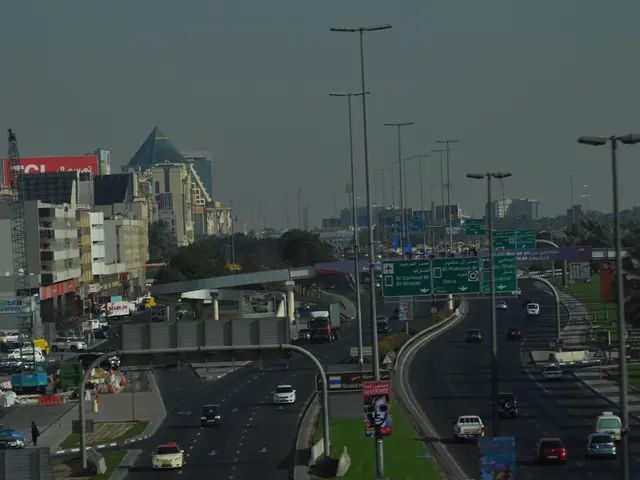U.S. President Trump issues threats of tariffs against Apple unless the tech giant shifts iPhone production to the American soil. Is such a transition viable?
Trump Threatens Tariffs on Apple Over iPhone Manufacturing in India
President Donald Trump has threatened 25% tariffs on Apple Inc. unless the tech giant moves its iPhone manufacturing to the United States, citing Apple's planned shift of part of its supply chain to India.
In a social media post on Friday, Trump stated, "I have long ago informed Tim Cook [Apple's CEO] that I expect Apple to manufacture and build iPhones in the United States, not India, or anyplace else." However, analysts suggest that a U.S.-bound relocation of Apple's supply chain is highly unlikely due to the time and expense involved and the ongoing cost of higher U.S. wages.
Industry experts have pointed out that even final assembly of Apple products like the iPhone in the U.S. would take several years and lead to higher prices for consumers. This may lead them to opt for cheaper alternatives. Avi Greengart, lead analyst at research firm Techsponential, told our website, "Anything is possible, provided you have a long enough timeframe and don't care about profitability."
In a policy change last month, Trump exempted phones, computers, and chips from so-called "reciprocal tariffs" imposed on China-made goods. This move also excluded such products from a 10% across-the-board tariff imposed on nearly all imports. The policy change provided major cost savings for Apple, which produces about 90% of its smartphones in China. Trump temporarily slashed the reciprocal tariffs on China from 125% to 10% last week, as the U.S. and China hold trade negotiations.
During the earnings call earlier this month, Apple CEO Tim Cook mentioned that the company had shifted production of iPhones sold in the U.S. to India to avoid high tariffs. However, Commerce Secretary Howard Lutnick said that Trump's vision for revitalizing American manufacturing involves enticing manufacturers to open factories and build in the U.S., and tariffs play into that strategy. Lutnick explained that the goal is "to reshore manufacturing, to build here, to have those people who build here not pay any tariffs."
Cook noted that the company already manufactures some components stateside, with more than 9,000 suppliers in the U.S. across all 50 states. However, U.S.-based manufacturing makes up a small share of Apple's supply chain, and any major expansion would take years and carry significant costs, analysts say.
Dan Ives, a managing director of equity research at the investment firm Wedbush, estimated last month that it would take three years and cost $30 billion for Apple to shift 10% of its supply chain to the U.S. The price of a U.S.-made iPhone could rise as high as $3,500, Ives said, making it a "nonstarter" for most consumers. A price hike of this magnitude would significantly impact sales, as the vast majority of consumers would opt for cheaper alternatives, according to Ben Bajarin, analyst at research firm Creative Strategies.
The upward pressure on prices due to high U.S. labor costs would render domestic manufacturing nearly impossible, presenting Apple with a dilemma. According to Bajarin, "Production will never happen in the U.S. -- unless we have absolute, fully automated assembly, which completely defeats the purpose because humans won't be doing the jobs."
In summary, while the Trump administration aims to bring manufacturing jobs back to the U.S., shifting iPhone manufacturing to the U.S. may not be feasible for Apple due to high labor costs, significant time and expense involved, and the potential for higher prices that may deter consumers.
- The threat of 25% tariffs on Apple Inc. by President Trump over iPhone manufacturing in India has raised questions about the company's potential shift in business, especially in the context of politics and finance.
- In the sphere of technology and general-news, experts have suggested that the relocation of Apple's supply chain to the United States is highly unlikely, due to the time, cost, and the impact on consumer prices.
- The policy changes in politics regarding tariffs on China-made goods have impacted the finance and business decisions of companies like Apple, which primarily manufactures its smartphones in China.
- Despite the Trump administration's push for revitalizing American manufacturing, analysts argue that the high labor costs, time, and expense involved make shifting iPhone manufacturing to the United States nearly impossible for Apple, leading to a potential dilemma in the tech industry.







